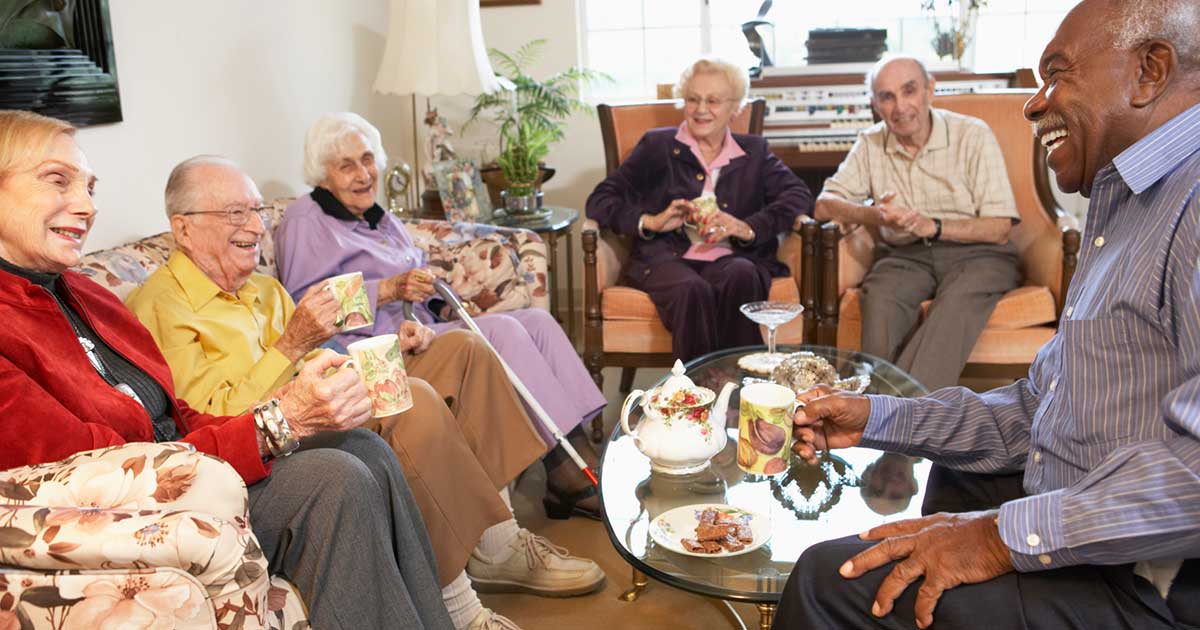 According to AARP, nearly a third of all Americans are providing care to a loved one who is elderly, sick, or disabled. Most of these caregivers take on the job willingly, but still find that the reality of caring for someone who needs full time help is exhausting, frustrating, and at times, very lonely.
According to AARP, nearly a third of all Americans are providing care to a loved one who is elderly, sick, or disabled. Most of these caregivers take on the job willingly, but still find that the reality of caring for someone who needs full time help is exhausting, frustrating, and at times, very lonely.
That's why, when well-meaning family and friends make certain comments, even in a spirit of support and encouragement, they can come across as hurtful and insensitive. If you have family caregiver in your life, try to avoid making any of these statements, and try an alternative instead.
1. "Don't Forget to Take Time for Yourself."
Why it hurts: Most family caregivers would love to be able to take time for themselves. They haven't forgotten; it's just that the needs of their loved one often consume their time and actually getting away for a few hours is easier said than done. Telling someone that they look tired, or that they should make themselves a priority often just adds on guilt, or makes them feel like they aren't succeeding in their jobs.
What to say instead: If possible, the best way to help a caregiver take time for him or herself is to provide that time. Offer to take their loved one out for a few hours so they can get some rest, or to come and sit with the patient so the caregiver can go do errands, see a movie, or recharge their batteries.
2. "Have You Thought of Trying . . . ?"
Why it hurts: You might think that suggestions for other options, such as moving their loved one to a facility, are helpful, but chances are, those options have already been considered. There may be reasons that the family isn't pursuing other options, such as finances or the patient's wishes. Not to mention, bringing up alternatives can be interpreted as an implication that the caregiver isn't doing a good job.
What to say instead: Unless you are a healthcare professional, or you have intimate knowledge of the situation, it's usually best not to say anything about how the patient is being cared for. If you learn of a new resource that could help, offer it in terms of wanting to help your friend; i.e., "I know you are doing everything you can for your mom, but have you heard about . . .? I saw an article and thought of you." This opens the door to a conversation, and shows you aren't passing judgement.
3. "Let Me Know if You Need Help."
Why It Hurts: Offering to help may seem like exactly the right thing to say, but it's frustrating to caregivers on several levels. First, these offers usually come in passing. Because the offer is so vague, many caregivers feel that it's just something that people say to feel better, and don't actually want to help. Second, it puts more pressure on the caregiver to determine a way that you can help. There may be so many ways you can help, that they can't choose just one.
What to say instead: Make a specific offer of help: You can bring a meal over, run errands, handle yard work, etc. If your friend is still learning about the home healthcare software that the home agency uses, offer to come over and help her learn. If he has talked about the struggles of taking his father to the doctor, offer to come along on the appointment to provide assistance. By listening to your friend or family member talk about their tasks, you can easily identify areas where you can help.
4. "I Don't Know How You Do It."
Why it hurts: There are several variations of this statement, all of which are meant to be encouraging but often backfire. Saying things like "You are so strong," or "You're a very special person to do this," can be interpreted as the situation is so bad that you are somehow strange for wanting to deal with it.
What to say instead: Often, how these statements are received depends on the delivery. If you really are in awe of your friend's strength in handling everything on her plate, tell her so. But do so in such a way that shows that you are sincere, and not just grateful that it isn't you having to do it.
Of course, the worst thing to say to any family caregiver is nothing at all. Caregiving is challenging, and sometimes just a phone call to check in or a simple casserole can make the difference between a good and a bad day. Just consider your words carefully, and don't offer words of encouragement as criticisms.







